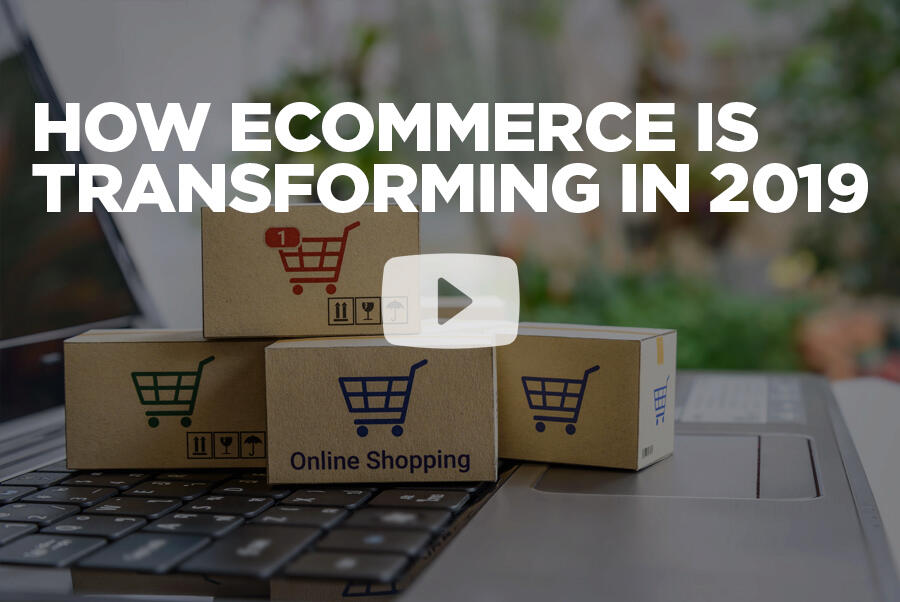
Blog Highlights:
- Shopify is a front-end software developed for fast-growing ecommerce businesses
- Helps aggregate products and put them on a web store so people can buy their products
- Needs to tie-into the back-end of your business (Oracle NetSuite ERP) to map data flows between systems
- By 2040, 95% of product purchases across the world will be made online
- Common struggles for ecommerce: Inventory counts, reconciliation, order processing, getting accurate data
- A complex eCommerce business requires a scalable solution to manage long-term business growth and extensive sales periods with heavy flows
- Streamlining order fulfillment & how to get real-time updates on inventory levels
- How does Shopify Integrate with NetSuite?
- The leading 3 reasons for a Shopify-ERP integration
In 2019, E-Commerce Brought in 3.53 Trillion Dollars in Sales
Did you know that by 2040, around 95% of all purchases are expected to be via e-commerce?¹. According to recent statistics, there are currently somewhere between 12 and 14 million e-commerce sites in the world², with new ones popping up almost daily. With China currently leading the largest e-commerce marketplace in the world, there were about 3.53 trillion dollars (USD) worth of sales in 2019³. That number is expected to double by 2022³.
Taking the numbers into consideration, more online retail businesses than ever are seeking out technology-based solutions to get ahead of their competition. How do you differentiate yourself in a user-experience-driven world? Having the best product is no longer the determinant factor in your success. Nowadays, having the smoothest customer service, a strong ecommerce platform and front end are necessities to efficiently running your online business with the objective of long-term growth.
If you’re reading this article, you’ve realized this - that’s why you’ve gone from upgrading your ecommerce front-end to Shopify for a smoother customer experience to future-proofing your finance system with Oracle NetSuite’s ERP software for ecommerce.
The next step is building the best possible infrastructure between your new systems to promote the long-term business sustainability that you’re striving to achieve. Without further ado, here are the 3 top reasons why ecommerce businesses are integrating their NetSuite system and their Shopify front-end.
3 Reasons Why You Should Integrate NetSuite and Shopify
1. Online Businesses Are Becoming More Competitive With Smart Cloud Tools
The days of calculating sales and reconciling inventory in thick leatherbound ledgers are far gone. That’s why more and more businesses are adapting to the online marketplace and taking on new tools to help them offer the smoothest customer experience possible. While Shopify is one of many available platforms for e-commerce business owners, its popularity is due to its flexibility and ability to scale up with your operations.
2. Integrating Shopify to NetSuite = All Your Data in One Place
A Shopify NetSuite Integration means that you can get all your business data in one place.
When it comes to front-end software, Shopify provides business owners with a powerful online store builder to reduce administrative tasks, increase your insight into the user experience and allows you to create a seamless buying process for customers. It helps business owners aggregate products in order to place them on a web store for online shoppers while processing orders.
Now, the next step is tying your Shopify instance to your back-end software, or more specifically to your ERP (enterprise planning resource).
As of June 2019, there have been a reported $100+ billion in total sales through Shopify source
Earlier, I mentioned that there are a whopping 14 million e-commerce sites across the world that are rapidly growing. In the days were brick and mortar led the market, it used to be that all you had to worry about as a business owner was having the brighter sign or the better deal.
That’s no longer true. In the digital age, your competition is steeper than ever, because it’s not just your neighboring store anymore. You are competing with businesses in the U.S., in Europe, China, Indonesia and more. Think about that from a customer standpoint for a moment - how do you differentiate yourself enough in such a wide market that your target consumer will choose you vs. your competitors? Client acquisition has become a race across the market and you want to run fastest - so why let yourself be slowed down by avoidable obstacles?
3. You can’t afford to miss orders because of volume issues or because fields don’t match up between systems
Let’s talk product flows - some of the common questions that will likely come up in your day to day are - “What do I have in inventory? How much supply can we accommodate? How much do we need to order? What sizes do I have available?”
Here’s where things become complicated for your e-commerce business:
Product Flows

Let’s say that an order comes through for 2 t-shirts, one in small and 1 in a medium. The next step is that order goes through Shopify, which then flows into your back-office.
Next, you will need to figure out which of your warehouses has these two products available. Then, you’ll need to reconfigure for inventory. Manual information flow leads to mistakes that can be costly here - if you’re inputting this information into a spreadsheet somewhere or manually entering into your NetSuite each time, a simple slip-up could throw off your inventory. We’re talking about the fast-paced world of online shopping - where businesses spend millions on customer acquisition. You want to provide the best customer experience. What if there is a refund - what has to happen to make this possible? You want to guarantee the smoothest user experience, while also managing your back-office data in the most accurate and detailed way possible.
Integrating Shopify with NetSuite’s ERP infrastructure allows you to easily match up the transaction number from the order that is processed through Shopify with your back-office, so that you can simply automate change order for returns and refunds. When a customer orders a specific item, that request will automatically flow through NetSuite into a transaction and reconcile for inventory count. This allows for a streamlined relationship between customer experience and financial management.
Customer Flows

Another issue of running your data on two siloed systems is managing customer flows. I’m talking about client information - from shipping, billing, credit card information to any of the private data that is unique to each of your clients. Your e-commerce front-end is geared to facilitate your user experience, but things get complicated when it comes to processing that data in your back-end. Where having a Shopify to ERP becomes crucial is in mapping the data flows between the two disparate systems so that you can start automating things like:
- Order fulfillment
- Updates on pricing (during promotions and Black Friday / Boxing Day events)
- Real-time updates on inventory levels
- Financial reporting processes
As a growing e-commerce business, your main concern should be selling more products and not losing valuable time and resources on manual work.
Streamline Your Ecommerce Finance Operations
Drive your integration with Oracle NetSuite Ecommerce and Shopify by leveraging an experienced NetSuite integration partner - GURUS Solutions is North America’s largest Oracle NetSuite services provider, with consultants all across the U.S. and Canada.
Our team of NetSuite Gurus are at the ready to supercharge your financial infrastructure. How? When you choose to use our technical professionals for your integration project, you get access to over 15 years of industry-specific experience and knowledge. With the knowledge gained from more than 2500 successful projects, our team will be able to provide you with the most targeted and powerful integration solution to ensure your critical data syncs between systems without a hitch.
Watch Our Integration Video to See The GURUS Partner Differentiator
References for this article:
- ¹Source: Nasdaq
- ²Source:DigitalCommerce360
- ³Source: Statista






